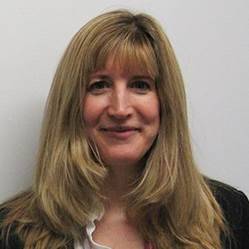The Human Factors, Teamwork and Communication course introduces the principles of human factors science as applied to systems of care. It teaches the skills needed to function effectively and safely in teams in a modern clinical environment, and how to apply human factors principles to the design of tasks, the assessment of equipment, and the measurement of human performance.
Please send me an email about future Human Factors, Teamwork and Communication courses.
The Human Factors, Teamwork and Communication course provides the opportunity to learn more about and discuss the following topics:
- Introduction to human factors
- Surgical perspective on patient safety and human factors
- Human factors in healthcare
- Statistics and study design
- Systems approach to quality and safety in healthcare
- Practical skills in patient safety
- Task analysis and synthesis
- Equipment and workspace design
- Behavioural safety
- Teamwork, simulation and non-technical skills
- Safety and quality improvement in healthcare.
- Analysing and making recommendations from incidents.
The course introduces the topic area with the 5-dimension Systems Engineering In Patient Safety (SEIPS) model, then takes one dimension to focus on each day. Most lectures have an accompanying practical session to practice the skills learned.
Offered by Nuffield Department of Surgical Sciences and the Department for Continuing Education, the taught week is led by Helen Higham, Consultant Anaesthetist at the John Radcliffe Hospital in Oxford; Associate Professor in the Nuffield Department of Clinical Neurosciences; Director of the Oxford Simulation, Teaching and Research Centre (OxSTaR). It features face-to-face lectures and tutorials in small groups. Teaching is delivered by members of the Quality, Reliability, Safety and Teamwork Unit research group, and invited speakers from other prestigious patient safety units.
Class sizes are kept small to allow full interaction with tutors. Study before and after the course is supported online by a rich virtual learning environment.
Previous guest speakers have included:
- Charles Vincent, Professor of Psychology at the University of Oxford
- Louise Hull, Research Associate, Imperial College London
- Lauren Morgan, Human Factors Research Scientist, University of Oxford
- Stephanie Russ, Research Fellow, Imperial College London
- Nick Sevdalis, Senior Lecturer, Imperial College London
- Patrick Waterson, Senior Lecturer, Loughborough University
Comments from previous participants:
"This is a whole new concept and it's not only fascinating but something that should be taught to everyone in healthcare. I have gained a method by which to assess and hopefully tackle some of the more subtle problems we face in healthcare."
"More surgeons should be exposed to these topics. A fabulous module with a great instructor."

